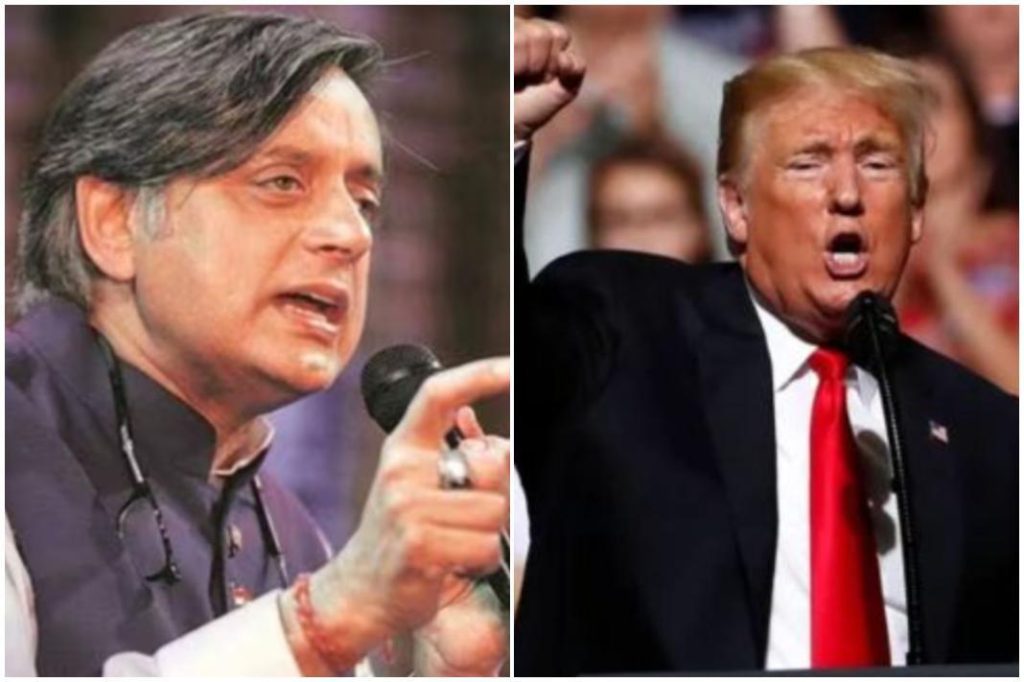
Shashi Tharoor Shares 4 Reasons Why Trump’s Ceasefire Post on India & Pak was ‘Disappointing’
In a recent tweet, Congress MP Shashi Tharoor expressed his disappointment over US President Donald Trump’s post on a ceasefire between India and Pakistan. Tharoor, a seasoned politician and diplomat, shared four reasons why he found Trump’s post “disappointing”. In this blog post, we will delve into these reasons and examine the implications of Trump’s tweet on the India-Pakistan conflict.
Reason 1: False Equivalence Between Victim and Perpetrator
Tharoor’s first reason for disappointment is that Trump’s tweet implies a “false equivalence” between India and Pakistan. In his tweet, Trump wrote that he had spoken to both Indian Prime Minister Narendra Modi and Pakistani Prime Minister Imran Khan, and that they had agreed to a ceasefire. Tharoor argues that this approach equates the two countries, implying that they are equal in terms of their actions and responsibilities. However, the reality is that Pakistan has been consistently supporting terrorism in India, while India has been a victim of cross-border terrorism.
This false equivalence can be detrimental to India’s interests, as it may lead to a perception that India and Pakistan are on an equal footing in terms of their actions. This can lead to a lack of accountability on Pakistan’s part and may embolden it to continue its support for terrorism.
Reason 2: Offers Pakistan a Negotiating Framework it Hasn’t Earned
Tharoor’s second reason for disappointment is that Trump’s tweet offers Pakistan a negotiating framework that it hasn’t earned. In his tweet, Trump mentioned that he had spoken to both Modi and Khan, and that they had agreed to a ceasefire. However, Pakistan has not taken any concrete steps to address India’s concerns about terrorism. Instead, it has continued to support terrorist groups and has not taken any meaningful action to curb their activities.
By offering Pakistan a negotiating framework, Trump’s tweet implies that Pakistan is a legitimate negotiating partner, which is not the case. This can lead to a perception that Pakistan is a equal partner in the negotiations, which is not justified.
Reason 3: Internationalises the Kashmir Dispute
Tharoor’s third reason for disappointment is that Trump’s tweet internationalises the Kashmir dispute. In his tweet, Trump mentioned that he had spoken to both Modi and Khan, and that they had agreed to a ceasefire. However, the Kashmir dispute is a bilateral issue between India and Pakistan, and it should be resolved through diplomatic channels and negotiations between the two countries.
By internationalising the dispute, Trump’s tweet may lead to external interference and pressure on India to compromise on its position. This can undermine India’s sovereignty and territorial integrity, and may lead to a lack of trust between India and Pakistan.
Reason 4: Re-Hyphenates India and Pakistan
Tharoor’s fourth and final reason for disappointment is that Trump’s tweet re-hyphenates India and Pakistan. In his tweet, Trump mentioned that he had spoken to both Modi and Khan, and that they had agreed to a ceasefire. However, India and Pakistan have been separate and independent countries since 1947, and they should be treated as such.
By re-hyphenating India and Pakistan, Trump’s tweet implies that the two countries are still connected and that their relationship is still relevant. This can lead to a perception that India and Pakistan are still under the same umbrella, which is not the case.
Conclusion
In conclusion, Shashi Tharoor’s tweet highlights four reasons why Trump’s post on a ceasefire between India and Pakistan was “disappointing”. These reasons include the implication of a false equivalence between India and Pakistan, offering Pakistan a negotiating framework it hasn’t earned, internationalising the Kashmir dispute, and re-hyphenating India and Pakistan. Tharoor’s tweet highlights the importance of understanding the complexities of the India-Pakistan conflict and the need for a nuanced approach to resolving it.
Source






